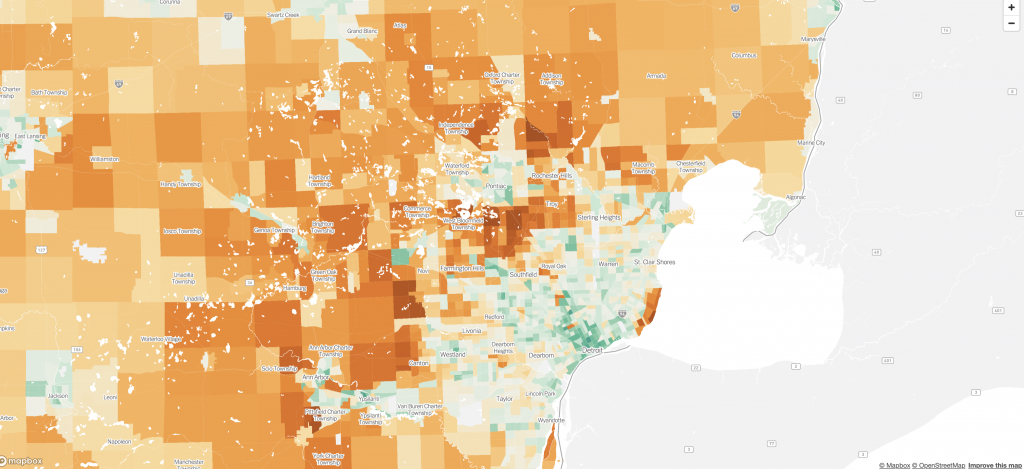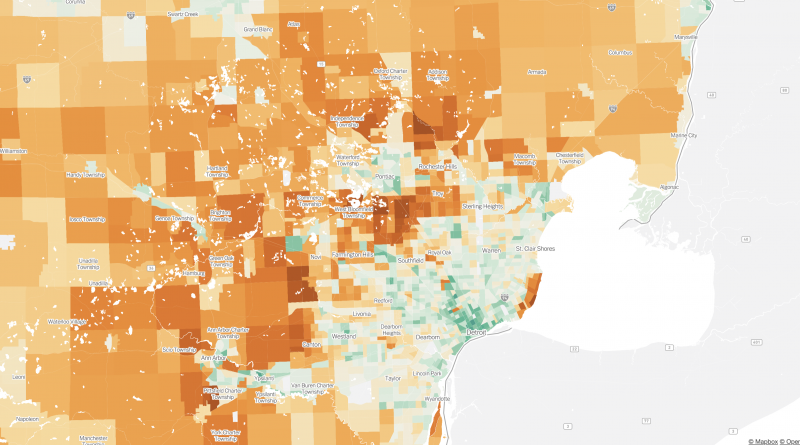Cities, Unsurprisingly, Have Far Lower Per Capita Energy Footprints.
A December 2022 has (again) been making the rounds on The Socials from The New York Times, whose readership is surprised to learn that cities boast lower energy and carbon footprints than their suburban or rural counterparts. This isn’t news. Nor does it really matter in an era when energy is still really cheap. Expensive as a matter of our utility bills? Yes. But so expensive that it has started to incentivize aggressive efforts toward decarbonization? Definitely not.
Still, it’s always great to see new tools for data visualization. These data in particular come from EcoDataLab, in partnership with the University of California Berkeley. Have a look at Detroit, where the odds and ends of suburban enclaves are made greener, literally and figuratively, by what is most likely a few individual clusters of institutional development (hospitals, retirement communities, supportive housing, etc.). The darkest we see in places renowned for their sprawl and their wealth. Reminder that wealth correlating with consumption is offset by lower emissions from things like transportation.

So, yeah, a 5,000 square foot apartment is huge for one Russian oligarch, but on average, even in the billionaire’s playground of Manhattan, the data show less energy consumed per person (inevitably skewed by the median consumer being far less than said Russian oligarch).




